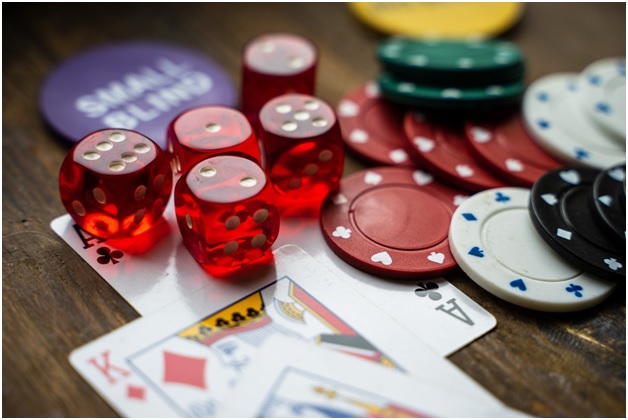Table games and slots are two of the most popular choices for casino enthusiasts. While some prefer the structured gameplay of table games, others enjoy the simplicity and excitement of slots. One of the most common debates among players revolves around their payout potential.
Some argue that the strategic nature of table games provides better chances. In contrast, others believe the high payouts in slots, especially progressive jackpots, are unmatched.
So which is better?
Understanding Table Games
Table games, such as blackjack, poker, and roulette, are staples of casinos. These games are played against a dealer or other players and involve a structured set of rules. They often require a combination of skill, strategy, and a bit of luck to succeed, which appeals to players looking for a more engaging gaming experience.
Strategy plays a crucial role in table games. Learning the basics, like blackjack’s optimal strategy or the odds in roulette, can significantly improve a player’s chances of winning. Players can also benefit from casino rewards like FanDuel Casino promotions, which often include bonuses or incentives for table games. These bonuses allow players to explore their favorite games while enhancing their bankroll.
The skill factor sets table games apart. While the house edge (the casino’s built-in advantage) exists in all games, mastering strategies can reduce it. This makes table games appealing for those who want more control over their outcomes, as opposed to games of pure chance.
Understanding Slots
Slots, on the other hand, are games of chance that require no strategy or prior knowledge. They are known for their simplicity, attracting players who enjoy quick and easy gameplay. With themes ranging from adventure to fantasy, slots provide endless entertainment.
One of the biggest draws of slots is the variety they offer. Players can choose from classic three-reel machines to modern video slots with intricate graphics and bonus rounds. The randomness of outcomes is ensured through random number generators (RNGs), giving every spin an equal chance of hitting a winning combination.
The payout structure in slots is based on RTP (return to player percentage), which indicates the average amount returned to players over time. Machines with higher RTP percentages are often preferred, though outcomes remain unpredictable. This randomness creates an exciting dynamic that keeps players coming back.
Comparing House Edge and RTP
The house edge is a significant factor in table games. For example, blackjack can have a house edge as low as 1% when played with optimal strategy. This means players retain more of their bets over time compared to other casino games.
Slots rely on RTP, which varies between machines but typically ranges from 85% to 98%. A higher RTP means players receive a greater return over time, but it does not guarantee short-term wins. Unlike table games, players have no control over the outcomes, making RTP the main determinant of payout potential.
When comparing house edge and RTP, table games provide an advantage for players who use strategy effectively. Slots, while offering high RTP percentages, are purely luck-based, leaving no room for skill to influence outcomes.
Skill vs. Luck
Table games allow players to apply skills and strategies to improve their chances of winning. Learning card-counting techniques in blackjack or understanding betting patterns in poker can significantly lower the house edge. This appeals to players who enjoy using their knowledge to influence results.
Slots rely entirely on luck. Each spin is independent of the last, with no way for players to predict or control the outcome. This makes slots ideal for casual players who prefer low-pressure gaming without the need to learn strategies.
The difference between skill and luck creates a divide in payout consistency. Table games often provide steadier, smaller wins, while slots offer the possibility of large, sudden payouts. The choice depends on what kind of experience players value more.
Progressive Jackpots vs. Strategic Wins
Progressive jackpots are one of the most appealing features of slots. These are pooled prize funds that grow as more players participate, sometimes reaching millions. Winning a progressive jackpot is rare, but the potential for life-changing payouts keeps players engaged.
Like table games, slots also offer bonuses and promotions that enhance gameplay. These allow players to explore jackpot games with added incentives, increasing their chances of enjoying the experience and potentially winning big. These offers make progressive slots even more attractive.
Strategic wins in table games provide a different type of reward. Players who consistently apply strategy can enjoy regular payouts, though they are often smaller than jackpots. This steadiness appeals to those who prefer to manage their bankroll and avoid relying solely on luck.
Final Thoughts
Table games and slots both offer exciting opportunities for casino players, but their payout potential varies based on the type of game and the player’s approach. Table games favor strategy and consistency, while slots provide the thrill of unpredictability and the chance for massive jackpots. For more in-depth or personalized advice, consider seeking professional advice.

